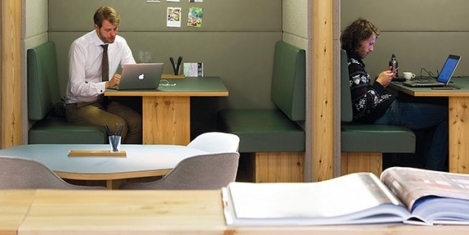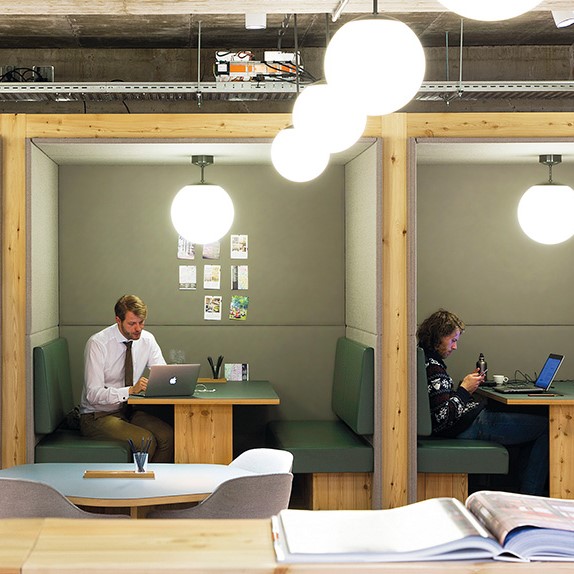August 13, 2013
Worldwide space standards moving closer to UK norm, claims new report
 Worldwide office space standards are now moving closer to the norm seen in the UK according to a new survey from CoreNet Global. According to the CoreNet survey of real estate managers, the average amount of space per office worker globally has dropped to 150 sq. ft (14 sq.m.) , from 225 sq. ft. (21 sq.m.). This is still well outside the standards from the British Council for Offices Specification Guide which reported a fall to 11.8 sq. m. in 2009 and which will be revised downwards even further with the publication of the new guide which has been promised soon. Even this figure might be seen as high and makes assumptions about the relevance of such space standards given the way some firms now work.
Worldwide office space standards are now moving closer to the norm seen in the UK according to a new survey from CoreNet Global. According to the CoreNet survey of real estate managers, the average amount of space per office worker globally has dropped to 150 sq. ft (14 sq.m.) , from 225 sq. ft. (21 sq.m.). This is still well outside the standards from the British Council for Offices Specification Guide which reported a fall to 11.8 sq. m. in 2009 and which will be revised downwards even further with the publication of the new guide which has been promised soon. Even this figure might be seen as high and makes assumptions about the relevance of such space standards given the way some firms now work.





 Construction business activity fell by the third month running in January, with new orders at slowest pace since October 2012 according to the latest Markit/CIPS UK Construction Purchasing Managers’ Index (PMI). There were some reports that snowfall had contributed to reduced output volumes, but the majority of respondents cited weak underlying client demand and a lack of new projects. However commercial activity was the only sub-sector to buck the wider downward trend in output during January with the latest data indicating unchanged volumes of commercial activity, ending five months of contraction.
Construction business activity fell by the third month running in January, with new orders at slowest pace since October 2012 according to the latest Markit/CIPS UK Construction Purchasing Managers’ Index (PMI). There were some reports that snowfall had contributed to reduced output volumes, but the majority of respondents cited weak underlying client demand and a lack of new projects. However commercial activity was the only sub-sector to buck the wider downward trend in output during January with the latest data indicating unchanged volumes of commercial activity, ending five months of contraction. 























November 12, 2013
UK leads the world in talent, but it needs the right culture in which to thrive
by Philip Ross • Comment, Technology, Workplace, Workplace design
(more…)